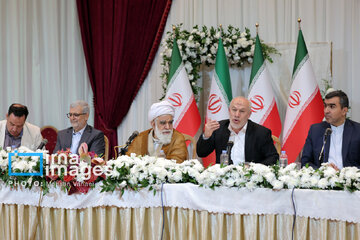Ahlul Bayt (AS) News Agency (ABNA): Question/Doubt: Is any conversation between men and women prohibited in Islam?
Answer:
The fundamental condition for establishing any relationship is dialogue and conversation. Without conversation, communication would essentially become meaningless and futile.
From a jurisprudential (fiqh) and religious textual perspective, mere conversation between non-mahram men and women is not prohibited—whether the discussion pertains to academic, political matters, or ordinary, everyday topics.
Imam Khomeini states:
“The stronger opinion is that hearing the voice of a non-mahram woman is permissible as long as it is not accompanied by pleasure or temptation. Likewise, it is permissible for a woman to let non-mahram men hear her voice, provided there is no fear of fitnah (temptation). Some have held the opinion that hearing a woman’s voice or letting it be heard is forbidden, but this view is weak. However, it is forbidden for a woman to speak to men in a sexually provocative manner—that is, to soften, delicate, or beautify her voice in a way that would arouse desire in weak hearts.”
The author of Al-Urwah al-Wuthqa has also issued a similar fatwa.
There are numerous historical accounts and narrations indicating that women conversed with the Prophet Muhammad (PBUH) and the infallible Imams (AS). In many instances, women would approach these noble figures to discuss various religious, familial, and other matters. For example, Lady Fatima al-Zahra (SA) and Lady Zainab (SA) at times spoke with non-mahram men.
The eloquent sermons of Lady Zahra (SA) in the Masjid an-Nabawi and Lady Zainab (SA) in Kufa and Syria—whether before the general public or in the courts of Yazid and Ibn Ziyad—are well-known.
Some may argue for the prohibition of speaking with non-mahram women by citing narrations that forbid men from initiating greetings (salam) toward women. However, according to jurists, this argument is not without flaws, as explained below:
- These narrations categorically prohibit initiating greetings toward all women—whether mahram or non-mahram—whereas established religious practice (sīrah) clearly indicates that there is no prohibition on initiating greetings toward mahram women.
- Other narrations demonstrate that the Prophet (PBUH) and Imam Ali (AS) did in fact initiate greetings toward women. In the authentic (ṣaḥīḥ) narration of Rabʿī from Imam al-Ṣādiq (AS), it is stated:
"The Prophet (PBUH) would greet women, and they would respond to him. Similarly, Amir al-Mu’minin (AS) followed the same practice—though he was reluctant to greet young women, saying: ‘I fear that her voice may sound pleasing to me, and its negative effect might outweigh the spiritual reward I seek by offering the greeting.’"
This authentic (ṣaḥīḥ) narration explicitly confirms that the normative practice (sīrah) of the Prophet (PBUH) and the Imam (AS) was to initiate greetings toward women. Had it been prohibited; these noble figures would have been the first to strictly adhere to such a restriction.
End…






Your Comment